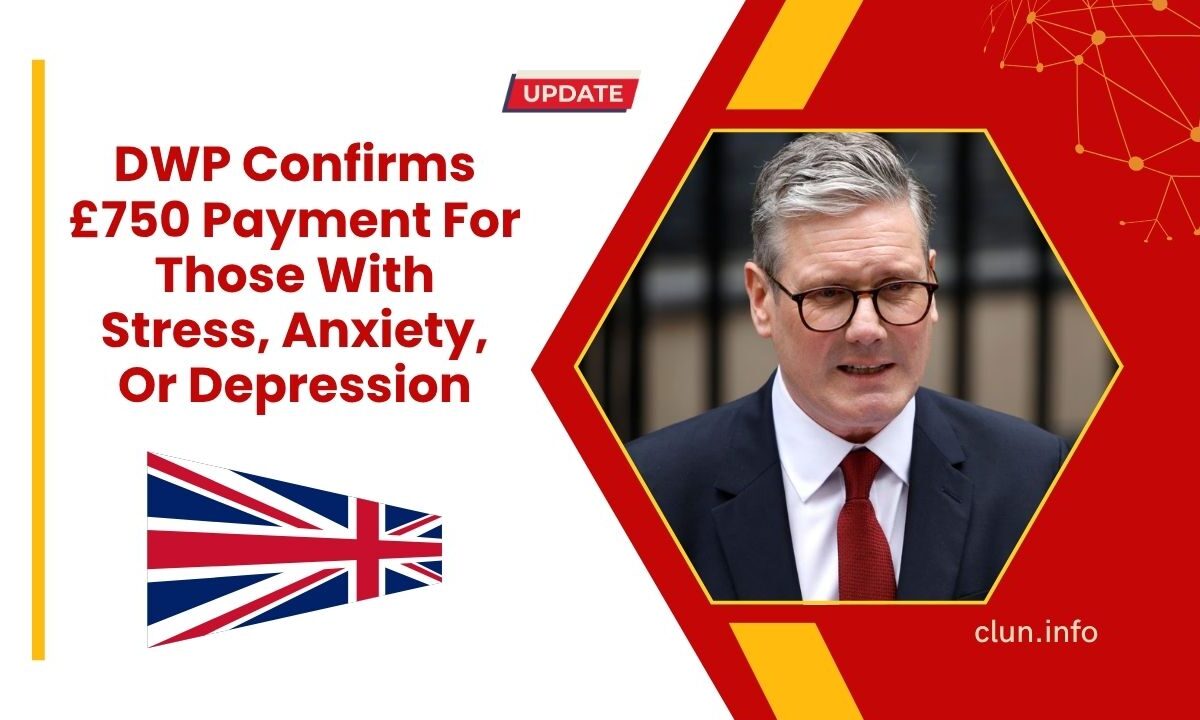Millions across the UK suffering from stress, anxiety, or depression could now receive up to £750 in financial support through the Personal Independence Payment (PIP), as confirmed by the Department for Work and Pensions (DWP).
With mental health issues rising sharply in recent years, the government is expanding its support to meet growing demand.
PIP Support for Mental Health: What’s Changing?
PIP is a non-means-tested benefit offered to individuals struggling with long-term physical or mental health conditions.
A major portion of recent PIP claim increases is directly linked to psychiatric and behavioral disorders like anxiety, depression, and stress-related disorders.
As of April 2025, over 1.44 million people in England and Wales were receiving PIP for psychiatric disorders, a part of a broader figure of 3.7 million total recipients.
Surge in PIP Claims: Mental Health in Focus
The number of individuals claiming PIP for anxiety and depression has soared in recent years. A comparison between 2019 and 2024 shows a dramatic rise from just 2,500 to 8,800 new claims per month, highlighting the impact of ongoing social, economic, and health-related stressors.
Additionally, the latest data from July 2024 indicates that 3.6 million people were entitled to PIP in England and Wales, marking a 29% increase from 2.8 million in July 2021.
Who Can Get the £750 Payment?
Those with stress, anxiety, or depression may be eligible for up to £750 in PIP payments, depending on the severity of their condition and how it impacts daily life.
Payment Breakdown:
| Component | Weekly Rate | Annual Equivalent |
|---|---|---|
| Daily Living (Standard) | £72.65 | ~£3,777.80 |
| Daily Living (Enhanced) | £108.55 | ~£5,644.60 |
| Mobility (Standard) | £28.70 | ~£1,492.40 |
| Mobility (Enhanced) | £75.75 | ~£3,939.00 |
A person receiving both standard Daily Living and standard Mobility components could earn around £750 in two months.
Administrative Errors and Missed Payments
The DWP is currently reviewing historical PIP claims after discovering systemic administrative errors. These errors have led to thousands being underpaid or denied PIP entirely, often due to missing National Insurance numbers, which are not required for PIP eligibility.
So far, the DWP has:
- Reviewed 455 cases
- Paid out over £500,000 in arrears within the past year
- Estimated some individuals may be owed over £5,000
The “MM” Ruling: A Game-Changer
A 2019 Supreme Court ruling, often referred to as the “MM” judgment, reshaped how the DWP defines “social support” during assessments for PIP.
This affects those who need help interacting with others—especially those with mental health conditions like social anxiety or severe depression.
The ruling states:
- Prompting may now count as social support
- Support given in advance of an interaction may also be considered
- This opens the door for more people to qualify under revised interpretation
This change could lead to re-evaluation of older claims, potentially entitling claimants to back payments of thousands of pounds.
Expert Commentary and Concerns
Ayla Ozmen, a policy director at an anti-poverty charity, emphasized the urgency:
“Errors in benefit payments can cause significant financial hardship. We urge the DWP to correct these mistakes quickly.”
Former DWP Minister Sir Steve Webb also expressed concerns over delays, stating that the review process for wrongly assessed claims “could perhaps have been processed more promptly.”
How to Apply or Appeal
If you believe you may be eligible for PIP due to stress, anxiety, or depression, you can:
- Apply online via the DWP website
- Call the PIP new claims number
- Consult with a local benefits advisor or welfare rights organization
For those previously denied or underpaid, a mandatory reconsideration or tribunal appeal may help you secure the payment you deserve.
The DWP’s confirmation of a £750 PIP payment for individuals with stress, anxiety, or depression marks a critical recognition of the growing mental health crisis in the UK.
With millions already receiving support and thousands potentially owed backdated payments, now is the time to check your eligibility and make a claim.
If you or a loved one struggles with mental health, this financial assistance could offer crucial relief during challenging times.
FAQs
How do I know if I qualify for the £750 PIP payment?
If you have a long-term mental health condition such as stress, anxiety, or depression that impacts your daily life, you may qualify. Eligibility is determined based on a health assessment.
What if I was denied PIP previously?
Due to the recent DWP errors and rule changes, you may request a mandatory reconsideration or appeal to reopen your case and potentially receive backdated payments.
Can I claim PIP without a National Insurance number?
Yes, a National Insurance number is not mandatory for PIP eligibility. Past rejections based on missing NI numbers were errors and are being reviewed.




